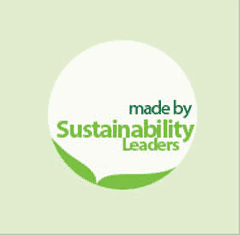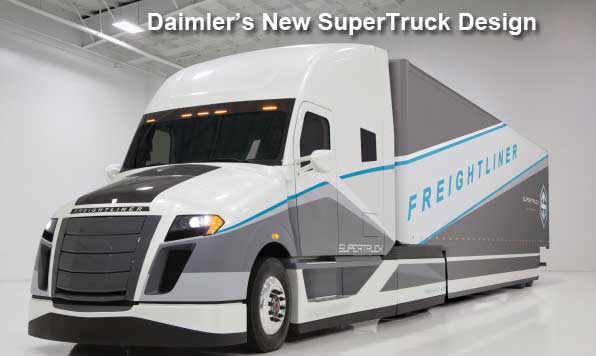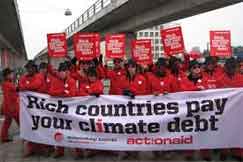It was a busy year in the Green supply chain in 2015. Here are our top stories for the past year, organized chronologically.
January
UK's the Carbon Disclosure Project (CDP) releases its 2015 report, based on 2014 data, and finds that 3,396 companies supplying its member firms worldwide submitted responses, up from 2,868 in 2013, out of 6,503 total suppliers asked to complete the survey. That was a response rate of 52%, about the same as the previous year.
But as usual, CDP says much more progress against CO2 emissions is needed.
"Despite the growing threat posed by climate change, the global response is falling short of what is needed. All the key metrics tracked in this year's supply chain program are either stagnant or only marginally improving," the report says.
February
Apple releases its annual Supplier Responsibility report, which has really set the gold standard for sustainability reporting, offering an incredibly candid view of that is happening across Apple's vast supplier chain operations.
The 2015 report says that Apple conducted 633 supplier audits in 2014, up 42% from the 451 audits it conducted in 2013. That included 210 audits of supplier sites that had not been audited in the past. The audits go across Apple's extended supply chain (meaning it includes companies it does not directly do business with but which sell to its tier 1 suppliers)
While most of the audits are scheduled, Apple conducted 40 surprise audits in 2014, where its teams visited suppliers on-the-spot and inspected the facility within hours.
A key Apple focus in 2014 was to end abusive programs relative to so-called recruitment fee, in which firms charge workers a substantial amount of money to secure a position in an Apple supplier factory
Also in February, Walmart announces it has launched something it calls its Sustainability Leaders Shop, an on-line shopping portal that helps customers identify and purchase products that are produced in what it defines as an environmentally and socially responsible way.
The effort is the customer-facing side of Walmart's supplier Sustainability Index, a program it launched in 2009 to grade suppliers on environmental and other sustainability factors.
 With this new initiative, Walmart says it will now be designating some 10,000 "best in class" products across 80 categories as Sustainability Leaders. That means that shoppers looking for anything from soap to printer ink will see which products are the most responsible by looking for the Sustainable Leaders badge. With this new initiative, Walmart says it will now be designating some 10,000 "best in class" products across 80 categories as Sustainability Leaders. That means that shoppers looking for anything from soap to printer ink will see which products are the most responsible by looking for the Sustainable Leaders badge.
The program is viewed as a great testing ground for how much consumers really prefer Green products and if they will pay more for them. At the same time, the program comes under some criticism for how products receive the designation and the self-reporting nature of most of the data.
March
Reports arise that the continued crash of commodity prices around the world is putting a big hit on corporate recycling programs and recyclers themselves.
For example, the price for a material such as polyethylene terephthalate (PET), used to make soft-drink and water bottles, is now actually more expensive for pellets made of recycled materials versus the more desirable new materials made directly from oil, with the petroleum price collapse.
There are similar problems in areas like recycled metals and paper, with a number or recyclers globally having gone bankrupt or in perilous financial shape.
US cities are also feeling the pain, and in some cases may have to move to putting plastic bottles and newspapers back in landfills, or perhaps paying a recycler to take the material off their hands, rather than selling the stuff for a small profit.
 Also in March, Daimler Trucks and its US brand Freightliner displays at a trade show its new prototype SuperTruck design, developed in part from a $40 million grant from the DOE program. Also in March, Daimler Trucks and its US brand Freightliner displays at a trade show its new prototype SuperTruck design, developed in part from a $40 million grant from the DOE program.
Daimler said the project, developed in partnership with engine maker Detroit Diesel and others, exceeded the company's expectations, achieving freight efficiency improvement of a remarkable 115%, far above DOE's own goal of a gain of 50%.
The mileage improvement come from a variety of innovations, including much more aerodynamic tractor and trailer designs, low resistance tires, and greater intelligence built into the drive train.
As with previous SuperTruck program designs, Daimler qualified the news by noting that some of the components used in the prototype truck may not be commercially viable at this point.
April
Walmart releases its 2015 sustainability report - and it is quite a document, with Walmart more aggressively than ever redefining its corporate mission from delivering quality p
roducts at everyday low prices to making the world itself a better place, in almost missionary terms.
"For years we've also been thinking in broader terms about what an item actually costs society to produce and deliver - from the bottom to the top of the supply chain - the "true" cost of a product." Walmart states early on. "The net true cost considers issues such as waste-to-landfill, greenhouse gas emissions, economic mobility, worker safety and food safety. These are all examples of the effects production may have on the environment, in local communities, or on the people who grow and make what we sell."
It adds: "We believe a business should strive for not just the lowest prices, but the lowest true cost for all. Low prices benefit customers, but low true costs benefit everyone."
As an example of this change in tone for 2015, Walmart says one of its missions is to create "economic opportunity for our associates, suppliers and people who work in retail and retail supply chains beyond Walmart."
May
An article published in the journal Environmental Science & Technology says the widely promised climate benefits of natural gas trucks will be realized "only if widespread emissions of heat-trapping methane across the natural gas value chain are reduced."
The methane is released from wells, fuel tanks, and other points in the natural gas production process. The researchers say methane has 84 times the warming power of carbon dioxide over a 20-year timeframe.
The news could hurt the adoption of natural gas trucks by reducing or even eliminating their supposed environmental benefits. The methane escapes at numerous points across the full natural gas supply chain. The good news is the fixes are relatively easy and inexpensive - though old habits die hard.
June
The Annual BP Statistical Review of World Energy is once again released. Highlights if this year's data include the news that for the first time, the US in 2014 was the number 1 producer of oil and natural gas combined, as the fracking revolution continues on. The US also supplanted Saudi Arabia as the world's largest producer of just oil as well, a prospect that the report says was "unthinkable 10 years ago."
Surging US production had the major impact on dramatically falling energy prices in the last half of 2014 and continuing in 2015, the report says. And somewhat astoundingly, the US produced 90% of the energy that it consumed in 2014, up substantially from just a few years ago.
Global primary energy consumption increased by just 0.9% in 2014, down from 2% in 2014 and its slowest rate of growth since the late 1990s, other than immediately after the financial crisis in 2009. This slowing was driven in part by the rebalancing of the Chinese economy away from energy intensive sectors, causing the growth of energy consumption in China to slow to its lowest rate since 1998.
Emerging economies accounted for all the net growth in energy consumption, but the 2.4% growth in those countries last year was well below its 10-year average of 4.2%.
Oil remained the world's leading fuel in 2014, with 32.6% of global energy consumption, but lost market share for the fifteenth consecutive year. While the rate of coal-produced energy growth slowed last year, it was still positive, at 0.4%.
Renewables - solar, wind, biofuels, etc. - were again the fastest growing form of energy and, in a year when global consumption growth slowed sharply, they accounted for one-third of the increase in total primary energy use. However, renewables provided only around 3% of the world's energy needs in 2014 - but that is up from a 0.9% share one decade ago.
July
Officials from 13 of America's largest companies to announce a $140 billion pledge in low-carbon investments.
The announcement is a part of the Obama Administration's American Business Act on Climate Pledge, which looks to partner with the private sector to reduce carbon emissions and meet its previously stated goal of reducing greenhouse gas emissions throughout the United States by 26-28% in 2025.
In addition to the $140 billion pledge in low carbon investments, the 13 companies (Goldman Sachs, Walmart, Apple, PepsiCo, Bank of America, Google, General Motors, Alcoa, Coca-Cola, Cargill, UPS, Microsoft and Berkshire Hathaway Energy) announced that their investment will also include a commitment to generate 1,600 megawatts in new renewable energy. By year's end, more than 150 US companies have joined the pledge.
Meanwhile, there is also news that iconic toy maker Lego has started research to develop a plant-based plastic for its famous bricks, to reduce C02 emissions from current oil-based plastic.
But it won't be easy - current plant based plastics cannot meet Lego's tight tolerances for brick production. The company says the research may take 15 years.
September
The US and China announce joint efforts on CO2 reduction, with more concrete plans to achieve goals the countries had previously announced. This includes a pledge by China to launch a program to cap some emissions by 2017 and put a price on carbon, probably through a cap and trade program.
How well the country will follow through of course is the key question.
November
Chemists at the University of California Berkeley have developed a new porous and flexible material - something called metal-organic framework (MOF) - for storing natural gas in vehicles that would potentially allow consumers to fill up their car's tank at home from a larger storage tank, without needing to stop at a commercial filling station.
That is because the tanks can be filled with natural gas at much lower pressure than current technologies, not only enabling much less expensive fueling stations but importantly also reducing the size of the tank needed in a car or truck.
While potentially a real breakthrough, the technology is several years away from commercialization at best.
December
 With great fanfare, a global climate deal of sorts is reached by nearly 200 nations at the UN climate summit in Paris, with many pledges to reduce CO2 emissions by various amounts in coming years. With great fanfare, a global climate deal of sorts is reached by nearly 200 nations at the UN climate summit in Paris, with many pledges to reduce CO2 emissions by various amounts in coming years.
But the pledges are voluntary, not legally binding, and will primarily be enforced by "peer pressure” as countries are required to report back on their progress - and potential new reduction targets - every five years.
Somewhat surprisingly, the demands for more money by developing economies - including China and India - don't boil over and scotch the deal as many conjectured, though richer nations do vaguely extend commitment to provide $100 bill annually starting in 2020, but where that money will come from and how it will be distributed are total unknowns.
Any reaction to our top Green Supply Chain stories of the year? What did we miss? Let us know your thoughts at the Feedback button below.

|